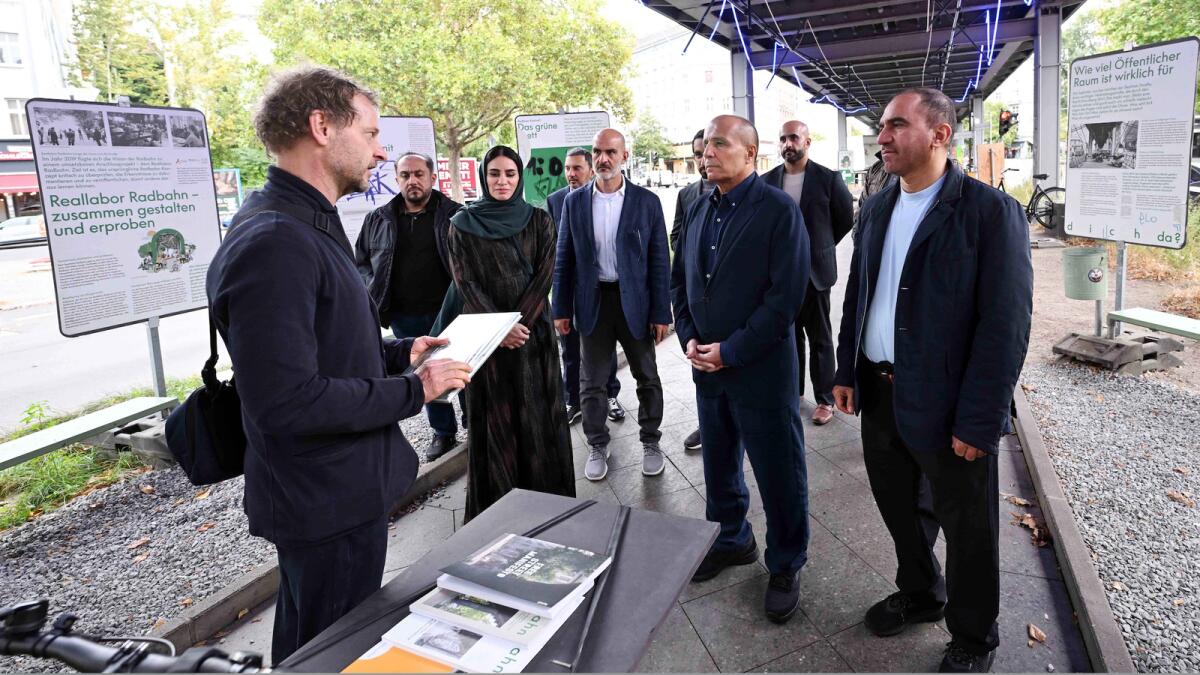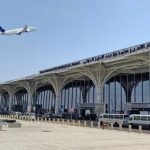Mattar Al Tayer, the chairman of the Supreme Committee for Urban Planning in Dubai, recently visited Berlin to learn about best practices in urban planning, fostering well-being, and developing infrastructure and public transportation systems. During his visit, he explored the Radbahn Berlin project, which aims to transform spaces beneath metro bridges into vibrant corridors for cyclists and pedestrians. This initiative integrates infrastructure with public amenities, creating an enhanced user experience for residents.
Additionally, Al Tayer visited the MOIA Company, a subsidiary of the Volkswagen Group, specializing in sustainable transport. He learned about the company’s urban transportation services and plans to establish the first fully autonomous transportation network. Al Tayer also toured the EUREF Campus in Berlin, a hub for sustainable innovation where start-ups, research institutions, and government bodies collaborate on renewable energy, green technology, and urban sustainability projects.
During his visit, Al Tayer also explored Schneider Electric’s exhibition, where he discovered the latest energy and automation solutions contributing to a more sustainable future for cities. He reviewed smart energy monitoring and lighting systems, energy storage solutions, and infrastructure for electric vehicle charging. The visit concluded with an inspection of the zeemobase laboratory, a multimodal station powered by renewable energy, showcasing innovative practices in sustainable urban development.
Al Tayer emphasized the importance of this visit in learning from global experiences in urban and transport planning to address strategic challenges faced by major cities, such as population growth and sustainability. He stated that Dubai aims to use insights from leading global cities to achieve the objectives of the Dubai Urban Plan 2040, positioning the city as the best place to live in the world. The plan focuses on providing sustainable mobility options, with the goal of having 55% of residents living within 800 meters of public transport stations by 2040.
The Dubai Urban Plan 2040 also targets a 105% increase in green and recreational spaces and aims to ensure that more than 80% of residents can access essential services within 20 minutes of travel. By learning from Berlin’s innovative urban planning practices, Dubai plans to enhance its infrastructure, public transport systems, and overall quality of life for its residents. Al Tayer’s visit symbolizes a commitment to sustainable development and improving the well-being of Dubai’s population.
In conclusion, Al Tayer’s visit to Berlin to explore urban planning and sustainable transport initiatives highlights the importance of learning from global experiences to address challenges faced by major cities. By integrating innovative practices from leading cities, Dubai aims to achieve its objectives outlined in the Dubai Urban Plan 2040 and position itself as the best city in the world to live in. Through collaboration with industry leaders and exploring cutting-edge technologies, Dubai is paving the way for a more sustainable and livable urban environment for its residents.











